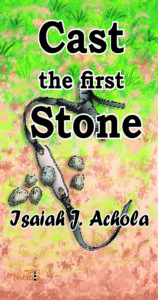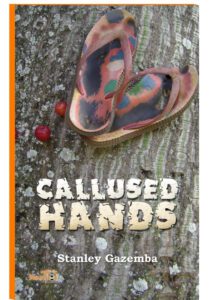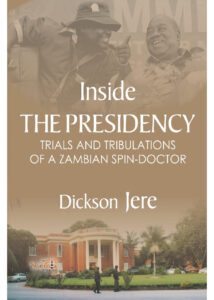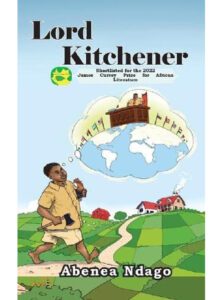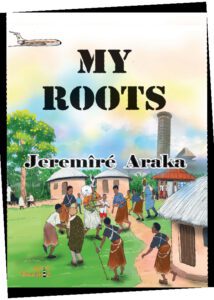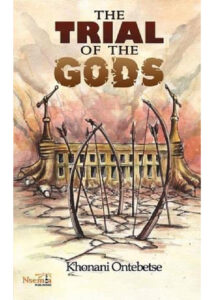
- Title: Callused Hands
- Year: 2015
- Author: Stanley Gazemba
- Publisher: Nsemia Inc. Publishers, Ontario, Canada
- Reviewed on: August 10, 2023
Stanley Gazemba does not need any introduction. Born to a school teacher in Vihiga, Western Kenya, Gazemba was introduced to books in his formative years. His was a rollicking boyhood of a privileged village boy, a lifestyle peculiar in those days to families of civil servants exiled in the countryside, but who nonetheless shouldered one of the key pillars of nation building — education, or was it ridding the country of illiteracy! Gazemba won the Jomo Kenya Prize for Literature in 2003, with his debut novel The Stone Hills of Maragoli when he was just 29.
When did he write this novel?
Discovered by one of Kenya’s pioneering and finest publishing editors, Jimmy Makotsi — like Jonathan Kariara before him — Gazemba is one of the most solid and formidable novelists Kenya has produced. But Gazemba has had it rough with publishers. Primarily, there are two levels of publishing; first, when a publisher receives a manuscript, he reads it to find out if the story is sound and well told.
As he does so, he takes note of grammatical, typing, or any other technical error or mistakes. His verdict is informed, not on the technicalities, but on the soundness of the story. Secondly, if he approves the manuscript for publishing into book, he assigns an editor or editors, instructively, with a fine tooth-comb, to work with the author to weed out errors, in what legendary publisher Dr Henry Chakava calls “minimal intervention.”
This does not mean rewriting the story or changing the author’s diction. Our publishers have gone to sleep. The industry is populated by greedy businesspeople given to conniving to loot money earmarked for education through the textbook boon. If the Ministry of Education releases a new curriculum today these publishers will fall into each other in a rush to cobble together textbook-oriented writers to produce school books. A writer of fiction does not set out to impress the Ministry of Education. His only drive is the story that comes to him which he must tell well. If the story is adopted for school, it is for these reasons.
Gazemba’s new novel Callused Hands has attracted more critical attention because the author is no doubt one of contemporary Kenya’s most prolific, accomplished, and sophisticated prose stylists. Those who set out to read the novel already prejudiced with real or not technicality like the English editor at an old publishing house who saw my copy of the novel and picked on the word “callused,” which she mistook for a misspelling of “calloused”, may just miss this beautiful, but heartrending story of the peasantry whose callused hands are caused by the greed of a callous politician.
Gazemba walks with the reader, letting them to venture into his characters’ lives as he exposes social evils. The setting of the novel in a coffee farm is striking. The characters are compelling. Gazemba’s powerful description which he achieves with ease, embellished in a rich vocabulary, imagery, dramatic irony, and dark humour sets him apart as a great writer. The tragic story of Yakobo’s family and the slave driver, JP King’ong’o, mirrors the systemic impoverishment of a people such as the one perpetrated by France on Haitians. The conflict in Callused Hands is between a mean, exploitative, brutish, and greedy politician and a resilient people. The resolution is as striking and believable.
Gazemba shows his imaginative genius by letting the story to unfold. The peasants are mistreated, abused, and suffer long enough. When they cannot take it anymore, they revolt. Gazemba steers clear of stereotyping or glorifying tribes, which even an able writer like Yvonne Adhiambo in Dust is unable to wrestle to the ground. Gazemba’s vision is a seismic social transformation that is possible when a people muster will, determination, and bravery to engineer mass protest: “What followed was rather spontaneous, sudden and unexplained. Like a single insect bite that suddenly whips up a stampede in a calm herd. All of a sudden the once peaceful gathering stirred, the grimy farmhands rising. The women, like a pack of agitated hounds on a spoor, scrambled for their sacks and hurried towards the gate…” of emancipation.
– See more at: http://www.the-star.co.ke/news/article-168085/callused-hands-waterloo-greedy-politician#sthash.iDb1YH5H.dpuf

